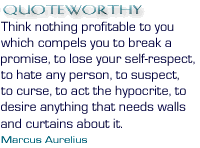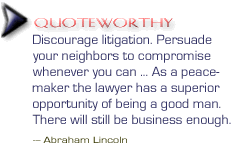

In the past decade, the concept of social responsibility has been adopted by many organizations, to the point where it means many things. In the simplest sense, it means that you are responsible not just for doing what you feel like doing, but for ensuring that your actions are responsible to The Web, the whole community, whether local or global. This definition assumes that your goal is to have a positive effect, rather than a harmful and self-serving one, on the greater community.
Yet social responsibility has also become an important concept in the public-relations campaigns of medium-sized and large corporations. The concept and phrase "social responsibility" has become a marketing pillar that often refers less to the whole of the organization’s actions, but more to a department, a campaign, a program of efforts or charitable donations. Such programs are often, though not always, synonymous with environmental efforts or causes. And, of course, corporate appropriation of the concept has fanned controversy, from perspectives that "corporate social responsibility" is an oxymoron, to the opinion held by some that it's not the job of for-profit corporations to be socially responsible ... that "the market" provides adequate policing.
According to Ethics in Action, a Vancouver, BC, organization whose awards program recognizes socially responsible corporations, "Socially responsible companies consider the full scope of their impact on communities and the environment when making decisions, balancing the needs of stakeholders with their need to make a profit." Thus, the success and effect of a socially responsible company is measured according to its whole impact on all who are affected by or involved in its operations (a.k.a. stakeholders), not just by virtue of its size, revenues, profits, returns to financial investors, or social-responsibility campaign budgets.
In such a holistic definition, an organization — whether for-profit or non-profit — might be independently owned and operated in a community accountable manner. Such an organization might endeavor to provide right livelihood or meaningful employment to its members; strike a balance between pro bono and for-fee work; eschew the greed that compels one to acquire and horde more than one needs; and adhere to the principles of right action and "no harm" to all who might be affected by its operations. The organization might actively seek to foster relationships and collaborative partnerships with like-minded organizations and individuals within its community so that it is more likely to have the freedom to adopt and demonstrate such tenets of real social responsibility. It's guiding philosophy would be one of self-responsibility and mutual benefit.
Given the broad spectrum of potential definitions for social responsibility, perhaps it’s time for us to review the concept and create a renewed definition, or even a new phrase or term, so as to avoid assumptions and the ultimate rendering of the idea as just another example of meaningless corporate jargon that masks harmful activities and changes nothing for the better.
With this Resource Portal, we hope to generate ideas and dialogue toward just that end.
• Celebrating Independent Spirit
• Change and Communication
• Community and Dialogue
• Conflict and Communication
• Corporate Culture and Communication
• Ethics and Communication
• Inspired Leadership and Communication
• Morale and Motivation
• Renewal and Transformation
• Right Relationships - Valuing People
• Spirituality and the Workplace
• Storytelling: Unleash the power!
• Strategy and Communication
• Vision, Inspiration & Creativity
• People-Centered Development Forum
• Center for Small-Biz and the Environment
• Sustainable Business Network
• Center for a New American Dream
• YES! A Journal of Positive Futures
• Coalition for Equitable Schools (bayces)
• Appreciative-Inquiry Resource Center
We at Ivy Sea have found interesting, and sometimes intellectually provocative, content at the above-referenced sites.
The sites may or may not reflect our personal viewpoints. Surf and apply your findings mindfully. Suggest a site link.
— What's your personal social responsibility?
— Mastery Tip: Countering social irresponsibility
— Tribes or Factions? How to Unite on Common Ground
— Celebrating the Independent Spirit
— Valuing People Portal: Right-Relationships in Business
— Unity, Tolerance & Humanity Portal
— Renewal and Transformation Portal
— Powerful Questions for Powerful Effects
— What's Your Civility Quotient?
— Tenets in common: honing virtue in the workplace
— Great Tools For Creative Discussion and Planning
— What is "Right Communication" Anyway?
For more resources, surf the Ivy Sea portals, starting with Search Ivy Sea Online or Inspired-Leadership Portal

